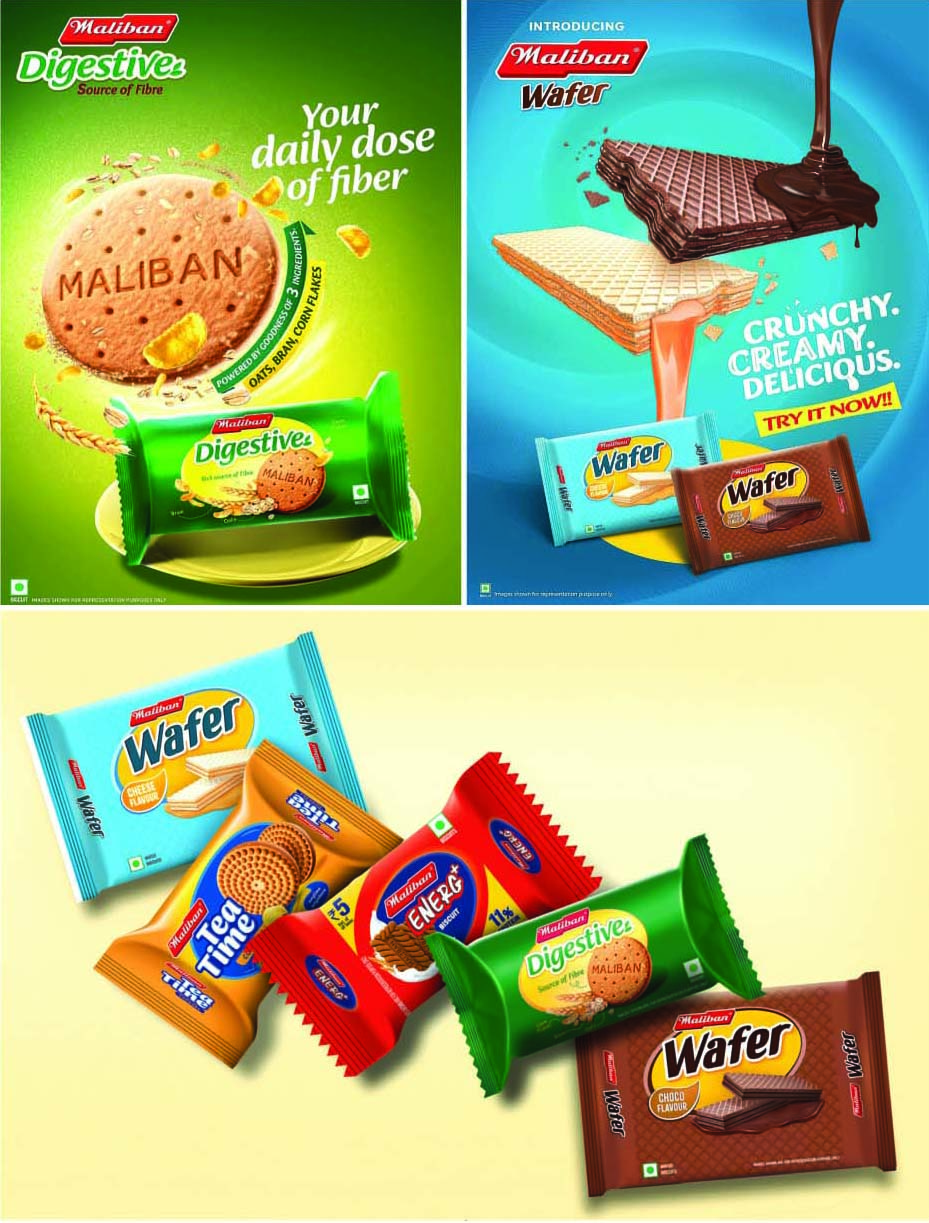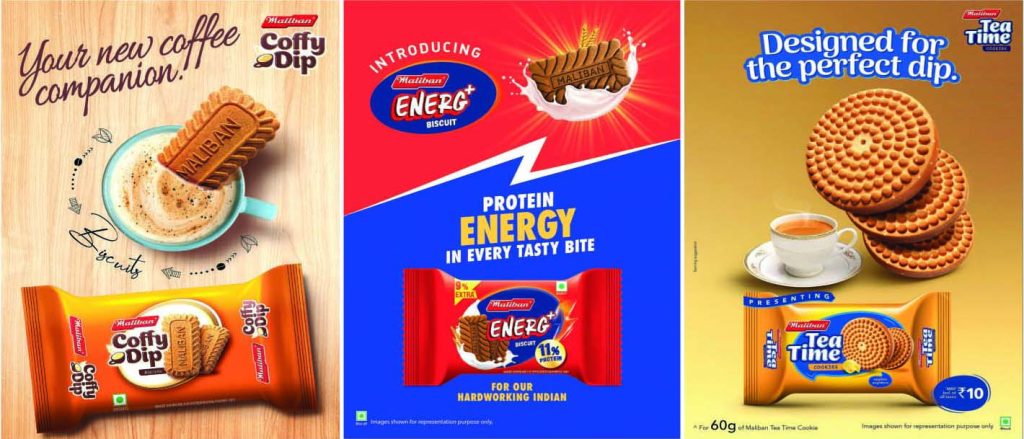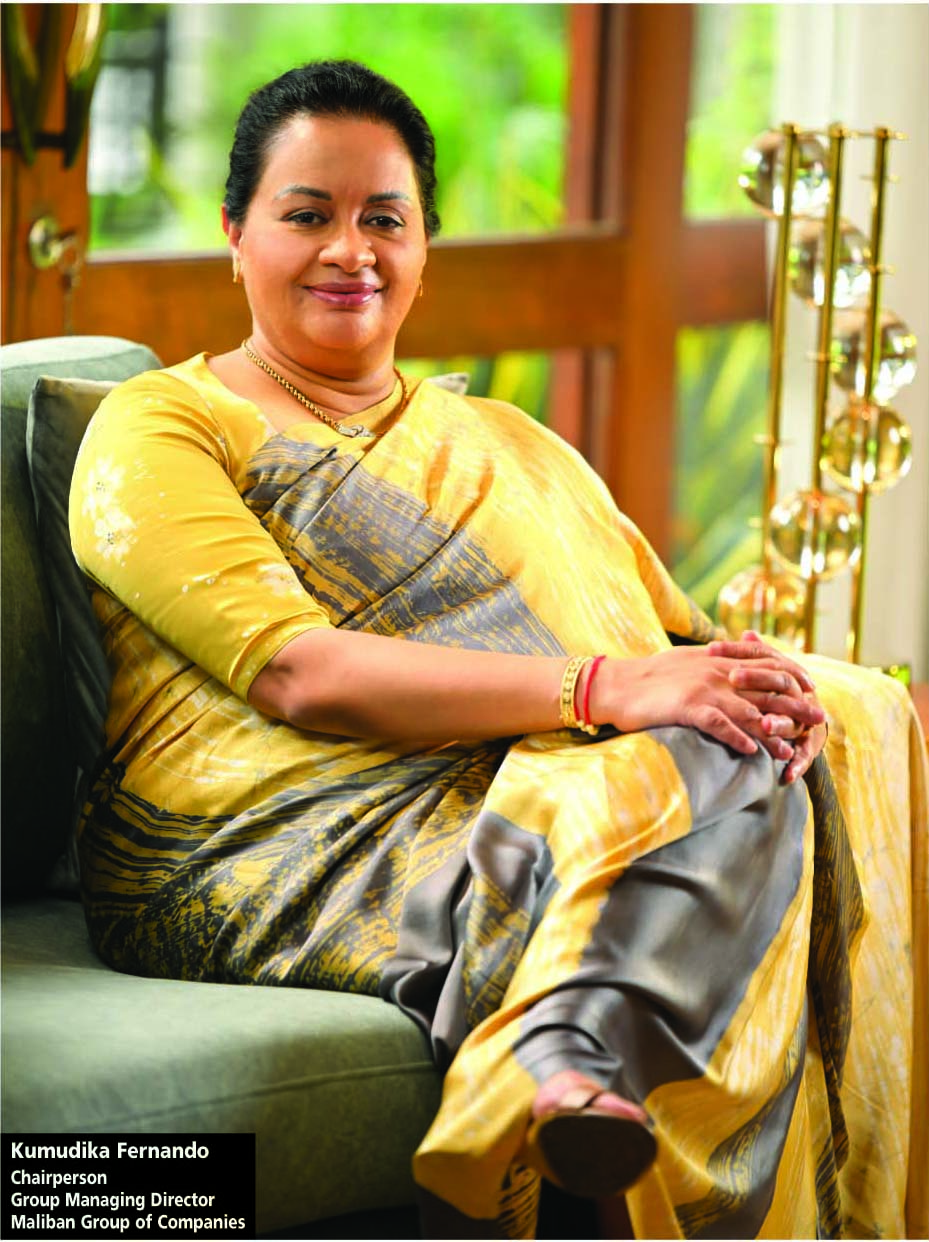WHEN LEGACY MEETS SCALE: MALIBAN AND RELIANCE REDEFINE REGIONAL FMCG PARTNERSHIPS
Maliban offers product equity and decades of consumer trust; Reliance brings pan-India reach, retail infrastructure and digital intelligence
Q: What strategic synergies did Maliban and Reliance identify that made this partnership not just viable but necessary in today’s fast moving consumer goods (FMCG) landscape?
T. Krishnakumar (KK): Maliban is one of the most iconic and trusted brands from Sri Lanka. It is the pioneer in biscuit manufacturing in the country and Maliban’s legacy transcends over seven decades. The products are exported to over 40 countries across five continents.
The trust Maliban enjoys, which has remained intact for over 70 years, is an endorsement of the management’s commitment to quality and the love consumers have for the brand. These values align perfectly with Reliance Consumer Products (RCPL). We aim to offer the best global quality products to consumers at honest pricing.
Maliban’s focus on high quality manufacturing and its unique formulations are perfectly aligned with ours. The shared values around affordable indulgence and family first consumption play a critical role in the synergy.
The partnership brings together Maliban’s baking and product excellence with RCPL’s intent to serve the Indian consumer with differentiated offerings at accessible price points.
In today’s FMCG landscape it is crucial to have your visions aligned. Furthermore, a clear understanding of each other’s strengths and expertise helps build a long-term partnership that can thrive.
Innovation is central to this partnership, not only in product development but in how we approach market fit and future readiness
Q: With Maliban making its foray into India through this alliance, what does this move signify in terms of your global expansion road map and long-term vision for the brand?
Kumudika Fernando (KF): Our entry into India is a defining milestone in Maliban’s broader regional expansion strategy. For over 70 years, we have been one of Sri Lanka’s most trusted consumer brands but as we look to the future, our growth depends on entering high-potential markets with strategic intent.
India – with over 1.4 billion people, a rapidly expanding middle class and an FMCG sector projected to grow at over 14 percent compound annual growth rate (CAGR) in the coming years – presents a compelling opportunity. This partnership allows us to shift from being a heritage exporter to becoming a deeply embedded, locally relevant regional brand.
By collaborating with Reliance, we gain access to robust manufacturing, distribution scale and real-time consumer insights. In the long term, this move aligns with our vision to establish Maliban as a top tier South Asian FMCG brand – one that is rooted in authenticity but agile enough to lead in emerging, high growth markets.
Q: India is among the world’s most competitive and diverse FMCG markets. From a strategic standpoint, what unique value does Maliban offer Indian consumers and how does it complement Reliance’s portfolio?
KK: Maliban’s addition to our portfolio through this strategic partnership has been crafted meticulously. While we already have our in-house biscuit brand, it is Maliban’s premium positioning and unique flavours that fill an important space in our overall portfolio.
That is why in India, Maliban has been retained as a stand-alone brand. It is an international brand with a substantial fan base, which further compliments our portfolio.
Reliance Consumer Products is known for its focus on promoting heritage brands that have served consumers and received much affection over the decades. Legacy brands such as Ravalgaon, SIL, Velvette and Campa continue to rule the hearts of today’s consumers. RCPL has successfully revived these brands and brought them back to life with a modern twist that meets present-day consumer preferences.
Similarly, a legacy brand such as Maliban has not only stood the test of time but its popularity has only grown over the years. This is also because the brand has managed to remain relevant amid ever-changing market dynamics.
At the same time, Maliban has been localised in terms of flavours, packaging sizes and price points – factors that make it a perfect fit for RCPL’s portfolio.
Q: Could you walk us through the thinking behind the decision to localise manufacturing in India, and how this move aligns with the broader themes of supply chain resilience and regional integration?
KK: India is a vast market – both geographically and in terms of its consumer base. We have nearly a billion consumers and that number is only growing. The large geography makes it imperative to localise manufacturing. Without it, no brand can expect to make a notable impact.
Furthermore, the country’s diverse set of consumers and regional preferences in taste and texture make it even more important for brands to align their offerings to local needs.
Therefore, it was essential to manufacture the products locally, ensuring greater control over quality, cost and innovation. This also enables us to scale efficiently and support a phased pan-India expansion with the aim of achieving a national presence within the next two years.
The shared values around affordable indulgence and family first consumption play a critical role in the synergy

Q: In your view, how does this partnership set a precedent for cross border brand collaboration between South Asia’s largest markets?
KF: This partnership is a powerful case study in how brands within South Asia can collaborate not only on trade but in terms of strategy, scale and shared innovation.
Historically, intra-regional brand cooperation has been limited. However, our alliance with Reliance reflects a new era – one where Sri Lanka and India as two of South Asia’s largest economies can co-create value.
Maliban offers product equity and decades of consumer trust; Reliance brings pan-India reach, retail infrastructure and digital intelligence. The result is not a transactional arrangement but a strategic synergy.
We are building a model of partnership that is scalable, localised and mutually reinforcing – one that could redefine how regional brands grow together, rather than apart.
Q: With evolving consumer preferences and heightened demand for trusted heritage brands, how are both companies working together to position Maliban as both familiar and forward-looking in the Indian context?
KK: Our strategy with Maliban is very clear. We want to deliver differentiated, value added products at accessible price points so that consumers don’t have to choose between quality and affordability – products that go beyond the usual in taste, texture, format or nutrition.
The brand is well known; but at the same time, it manages to offer consumers choices that were not previously available in the market.
For example, Maliban Energ+ offers 11 percent protein, making it a functional biscuit. The Tea Time Marie is crafted with unique dotted designs that deliver a superior tea dunking experience. Our wafers are a stand out in the segment with true lightness and premium flavours – unmatched by many local brands.
Meanwhile, Maliban Digestive biscuits bring health and taste together; functional and enjoyable at the same time.
Q: What role does product innovation play in this partnership, and how are insights from both Sri Lankan and Indian markets being leveraged to create next generation offerings?
KF: Innovation is central to this partnership, not only in product development but in how we approach market fit and future readiness. Today’s Indian consumer, particularly in Tier 1 and Tier 2 cities, is discerning, experimental and increasingly health conscious. At the same time, value for money and taste authenticity remain non-negotiable.
By combining Reliance’s access to consumer analytics with Maliban’s legacy of product excellence, we’re able to co-create relevant stock keeping units (SKUs) for different regions.
This means adapting flavour profiles, trialling healthier variants and innovating around formats – whether it’s single serve packs, sugar reduced formulations or locally inspired inclusions.
Importantly, the innovation is bidirectional. Insights we generate in India will influence our Sri Lankan and export portfolios as well, creating a future focussed product ecosystem that’s regionally informed and globally competitive.
Q: From Reliance’s vantage point, how does this collaboration with Maliban reflect its broader strategy to diversify and ‘premium-ise’ its FMCG ecosystem?
KK: In India, Maliban is positioned as a brand that offers premium products that are not only of international quality but also rare in the market – all at an affordable price.
It’s a trusted international brand made available by one of the most trusted brands in the country – Reliance – and caters to consumers who are looking for the best quality products with honest price tags.
Q: How do you view the role of strategic partnerships such as this in redefining regional manufacturing hubs and what implications does this have for future investments in food production infrastructure?
KF: The traditional export and import model is giving way to regionally rooted manufacturing ecosystems, and partnerships such as this one are driving that shift. By producing within India, we unlock cost advantages, respond faster to demand and meet local compliance with greater ease. It’s also a critical move in reducing our supply chain emissions and building resilience in a post-pandemic world.
Above that, we’re contributing to the creation of regional manufacturing hubs capable of serving large, diverse markets efficiently. For Maliban, this opens the door to invest in smart production, advanced automation and localised sourcing aligning with our sustainability goals and operational benchmarks.
As the region moves towards greater trade integration and supply chain modernisation, this model sets the foundation for long-term infrastructure investment across South Asia.
We want to deliver differentiated, value added products at accessible price points so that consumers don’t have to choose between quality and affordability

Q: Looking ahead five years, what would success look like for this partnership, and how might it shape the regional FMCG narrative across South Asia and beyond?
KF: Five years from now, success means Maliban is a trusted name in Indian households especially across key consumption regions. It means a product portfolio that balances legacy favourites with locally resonant innovations, distributed efficiently through Reliance’s expansive network.
However, success also goes beyond market metrics. It’s about setting a new standard for South Asian collaboration where regional brands can scale through shared infrastructure, local insight and co-created innovation.
We hope this becomes a blueprint for how legacy brands and retail giants can partner to build brands of substance and scale not through acquisition but rather alliance.
Ultimately, we see this partnership as contributing to a new FMCG narrative: one where South Asia’s own brands rise through collaboration, resilience and regional strength – not merely as players in local markets but as leaders across them.
– Compiled by Tamara Rebeira
COMPANY DETAILS
Telephone 5555000 | Email cic@malibangroup.lk | Website www.malibangroup.com


